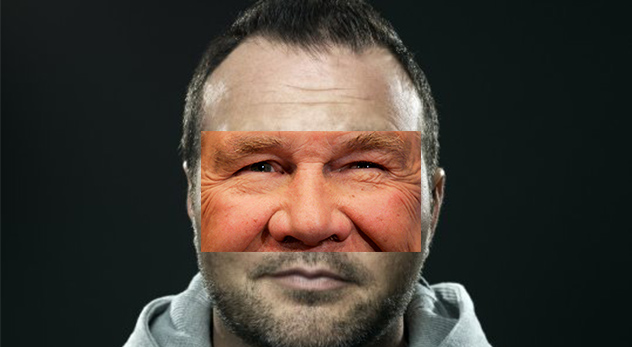
The copious controversies of Seattle pastor Mark Driscoll make him strikingly similar to the blundering Pat Robertson.
At the Catalyst Conference in Dallas, Texas, pastor Mark Driscoll ignited controversy yet again when he made it known that he isn’t concerned with caring for creation.
“I know who made the environment,” Driscoll reportedly said. “He’s coming back, and he’s going to burn it all up. So yes, I drive an SUV.”
The 42-year-old pastor has developed a cult-like following among American evangelicals in recent years, energizing his fan base with similarly brazen comments. From antiquated views of women to a seeming obsession with sex-talk to shouting to his congregation that “God hates you,” Driscoll’s raison d’etre seems to be creating conflict. In fact, his acquired taste for foot is so fierce that one can’t help but be reminded of a Christian leader from last generation: Pat Robertson.
Robertson began his career as a Baptist minister in 1961, but he rose to prominence in the 1980’s as the founder of The Christian Broadcasting Network, and later, The Christian Coalition. He became a political force in American life, eventually running in the 1988 Republican primaries against George H.W. Bush. Robertson’s supporters’ signs said, “Knock ‘em flat, Pat”. And he did—just not in the way they’d hoped.
He would claim the oppression of evangelicals by liberal America is ”more terrible than anything suffered by any minority in history” and the feminist movement is “about a socialist, anti-family political movement that encourages women to leave their husbands, kill their children, practice witchcraft, destroy capitalism and become lesbians.” And he threatened that if Walt Disney World continued to host “gay days” at its theme parks, God might send a meteor to destroy America.
In recent years, Robertson insinuated that Ariel Sharon suffered a massive stroke because he wanted to “divide the land” of Israel, and he urged the United States to violate international law and assassinate Venezuelan President Hugo Chavez. He claimed that Hurricane Katrina was God’s payback for Mardi Gras and said the Haitian earthquake was God’s judgment on the country because they “swore to a pact with the devil.” In 2011, Robertson encouraged a viewer of his television show to divorce his Alzheimer’s-stricken wife “and start all over again.”
And these are only the highlights.
Robertson’s meteoric rise to popularity morphed into a slow burn of outlandishness, a trajectory that Mark Driscoll is well on his way to mimicking. To wit,
- Avatar is the “most demonic, satanic film” he’s ever seen.
- Stay-at-home dads are “worse than unbelievers.”
- Women shouldn’t hold leadership positions in the church since they are “more gullible and easier to deceive than men.”
- Fallen pastor Ted Haggard’s wife may be to blame for his infidelity if she didn’t keep herself up. [Pastor Mark later apologized for this comment.]
- Biblical wives should give their husbands frequent blowjobs and perhaps allow their husbands to have anal sex during menstruation.
- If a man masturbates without a woman present, it is “a form of homosexuality.”
Robertson’s incendiary comments are often political or prophetic, while Driscoll’s are usually theological or social, but it’s difficult to discern which are more provocative. And while Driscoll’s list of miscues stretch long for someone of such a young age, Robertson has had more opportunities at 83-years-old. What if Mark Driscoll had a daily television show where he could say anything he wanted? Might we not surmise that before long he would amass a Robertson-esque portfolio? It seems likely.
Another growing similarity between the two men is the way they’ve been able to polarize even the core of their own Christian bases. Mainstream Christians desperately want to ignore both figures, but they can’t. They just can’t. There are too many broadcasts and podcasts, book sales and supporters. So instead, many work to distance themselves from either leader whenever their names arise in conversation.
When it comes to Robertson, Christians—even those who voted for him in the ‘88 primaries and watched his television show, “The 700 Club”—are now quick to assert they don’t support him. “I’m not a Pat Robertson kind of Christian,” someone might say.
The same is true for Mark Driscoll. He’s been heavily criticized by Christian voices across the spectrum, and according to reports, several attendees at the Catalyst Conference in Dallas walked out during his talk. He’s even being marginalized by some Reformed Christians (i.e. Calvinists) who precipitated his rise to prominence. “I’m not a Mark Driscoll kind of Calvinist,” some have remarked to me.
Over the years, both men have been pressured to issue apologies and clarifications. Ironically, when I received word of the comment made at Catalyst, I was in Malawi working with Christian brothers and sisters there who’ve been wracked by environmental devastation. I wondered why an American Christian leader would make insensitive and flippant comments about such a serious topic. One might make the case that in such a situation, it is beneficial for Christians who disagree with their perspectives to distance themselves. After all, when an influential Christian claims to follow Jesus but makes inappropriate remarks, those outside the faith may think they represent all Christians. Unless others speak up.
Unlike Mark Driscoll, I don’t believe that God is going to burn up the world with a literal fire, but I am reminded of another fire mentioned in the Bible. The Apostle James calls the tongue a “small spark” that can set a forest ablaze. When Christians produce leaders with a penchant for bombastic speech—as each generation does—we’re reminded again of the power of words. They can destroy or heal, burn up or breathe life. We get to determine how we use our words, just like each generation gets to choose whether to support those who misuse theirs.
And you can take your SUV to the bank on that one.





